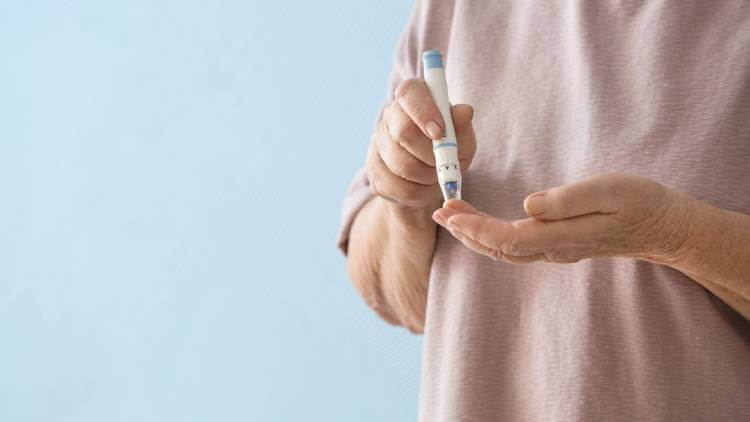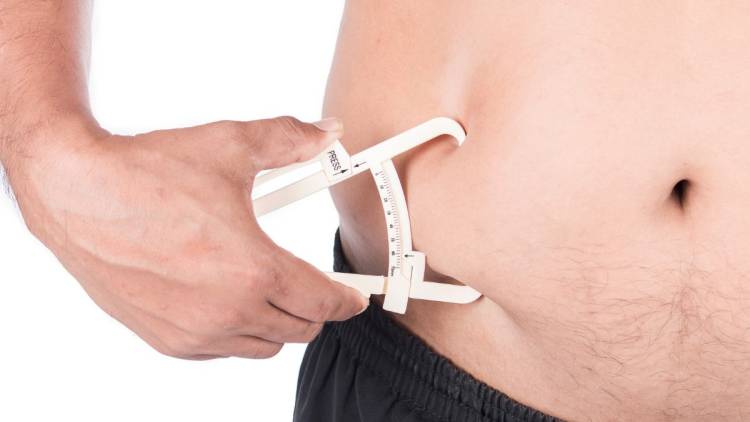There are many different weight loss programs out there in the market with new ones arising all the time. How do you know when a diet you want to start will allow for safe weight loss diets for seniors?
Seniors need essential nutrients more than most adults. Age plays a factor in weight loss. You have to be more mindful of how you go about it. Hopping onto the latest fad diet is not a good idea. Consulting your physician and a dietician is a must.
This article will give you the basic guidelines to consider before you move ahead.
Is it a Good Time for Weight Loss?
There’s a good time and a bad time for planned weight loss.
After Surgery
An example of a bad time is right after you have had some type of major surgery. Whenever someone has major surgery, the procedures and the healing use up high amounts of vitamins and minerals so the body can heal from it. After major surgery, your goal is to build your body, not lose weight.
When you are on a low calorie diet, you cut your intake of nutrients by 33-50% from what you would normally get from food. Thus, what happens when someone goes on a diet after surgery is they don’t have the energy levels they need to sustain the stresses of the diet with its low level of vitamins and minerals.
All this means that trying to lose weight is not a good idea when your body is already losing weight.
Osteoporosis
You need to be mindful all health problems you have when considering weight loss.
A diagnosis of osteoporosis is always something seniors should consider. This is a condition where bones become very brittle. They are in this condition because the person needs nutrients; thus going on a weight loss diet only damages the person’s bones even more.
There are ways around this, such as taking high doses of supplements that have been strategically planned out by a clinical nutritionist and combining them with a weight loss diet. However, it’s not something that someone can do on their own with their own limited amount of wisdom in nutrition.
Diabetes
If you have diabetes, the type of weight loss diet you go on matters a lot. Diabetes is a disease where carbohydrate metabolism is not normal. If you have diabetes, eating high amounts of carbohydrates on any diet – normal or weight loss – is working against yourself.
Not all diabetics can go on a keto diet, for example, because some of them are prone to develop naturally high levels of fat and cholesterol. They may have genetic predispositions to metabolizing fat that result in high levels of cholesterol and blood fats. In these conditions, eating the high fat and high cholesterol foods from a keto diet could predispose someone to a heart attack.
Malnutrition
Seniors suffering from any level of malnutrition should also forgo a weight loss diet until the malnutrition has been corrected. This includes those who have had or presently have eating disorders. These disorders are almost always accompanied by malnutrition and nutrient deficiencies that linger for years if they have not been addressed.
Going on a diet with nutrient deficiencies causes the deficiencies to worsen. The exception is when a clinical nutritionist develops a personalized, extensive supplement program for the individual.
When someone has any level of malnutrition, it is then best to not use any weight loss strategy that is quite overwhelming such as fasting on only water for 3 or more days.
3 Safe Weight Loss Diets for Seniors
If you are a senior citizen and don’t have any chronic degenerative diseases, you may choose other types of diets to lose weight. Below are some that are sound and based on good nutrition:
- Jenny Craig Weight Loss Centers
- Nutri-System Weight Loss
- Weight Watchers
1 – Jenny Craig
Every diet has its pros and cons. For example, Jenny Craig Weight Loss Centers offers a weight loss program that restricts fat, calories and portion size. Clients get motivational support through phone meetings and do incorporate fresh food in their program. It’s a meal delivery program where you eat six times a day and consume 1200 up to 2300 calories per day depending on your starting weight.
Jenny Craig is generally considered a safe diet. However, on this diet you can’t ever eat out at restaurants, purchase any food from the grocery store other than what’s on their allowed lists, and have no sweets or desserts other than their brand name desserts.
There is also a hefty cost associated with the diet. It’s not suitable for those who are sensitive to gluten or have food sensitivities or allergies and may be too high in sodium.
2 – Nutrisystem
Nutrisystem offers a lot of pre-packaged foods, which are not as nutrient dense as cooking foods yourself. This can save you time but when you go back to eating a regular diet, you may regain the weight because you really haven’t had the time to learn new eating habits.
Nutrisystem is considered safe for most people. However, the diet will likely not be suitable for people with soy allergies and certain health conditions, such as celiac disease, people on dialysis, etc.
3 – WW (formerly Weight Watchers)
Weight Watchers is not only one of the most researched weight loss programs, but it also has a strong track record of results. Participants use a food points system to make food choices and monitor consumption quantities. There’s a learning curve on how many points different foods have, but they make it easy.
The WW system is a safe method of weight loss. You learn more about the real do’s and don’ts for weight maintenance but it is a slower way to lose weight. They give you accolades for a one pound weight loss each week. The calorie restriction may not be as great as what you need, and it may get frustrating to not show a weight loss of even a pound a week, especially in this “I want it now” society.
Some people claim that hCG promotes the development of ovarian hyperstimulation syndrome but not a lot of studies have been done on this claim.
2 Unsafe Diets for Seniors
Now that we have covered safe diet options for seniors, let’s look at a few that can be potentially harmful. Generally, you can look on fad diets with suspicion. If the diet has not stood the test of time and makes lofty claims, those are additional red flags.
Following are two diets in particular that you should be skeptical of.
The HCG Diet
The HCG diet is a 500 to 800-calorie diet that eliminates high caloric, high glycemic index foods and stops the insulin reactions from occurring from the present diet you are on. You fix your own food and go through a small learning curve and receive vitamin B12 shots as well as the pregnancy hormone HCG in very small doses. You are under medical supervision with this diet.
This diet starts out with eating high-calorie food for the first 1 to 2 days. They give you a meal plan that is sustainable after the weight has been lost. Some people lose 20 to 30 pounds in 8 weeks.
This diet takes advantage of intermittent fasting as well, which resets your metabolic pathways and also has been shown to eliminate some chronic degenerative diseases.
Unfortunately, the diet is not safe or effective, and the FDA has advised against HCG diet products.
Water Fasting Clinics
There are now water fasting clinics that work specifically with those who have several chronic degenerative diseases, even diabetes. The health professionals put patients on a water fast under medical supervision. These clinics have medical staff on duty 24/7 to attend to the patients’ needs.
Fasting under medical supervision is one way to lose weight but you often have to stay at the facility to do it. These facilities accept people for a week up to about six weeks at a time. You may lose up to 40 pounds during that time.
It sounds great, but there have been many adverse events during medically supervised, water-only fasting. Absolutely consult with your physician if you are contemplating a diet of this kind.
2 Other Options
Bariatric Surgery
The amount of weight you have to lose makes a big difference in what diet you choose. Some seniors who are determined to be morbidly obese – weighing more than 100 pounds greater than their ideal body weight – may choose bariatric surgery options such as stomach stapling. All bariatric procedures alter the anatomy and physiology of the GI tract – and it is a decision that should be made carefully.
Bariatric surgery may lead to disabling diseases such as anemia, osteoporosis, and protein malnutrition. The decision to undertake bariatric surgery must be careful weighed – with your physician – with the risks and benefits.
Also, bariatric patients will lose so much weight quickly that they may need their sagging skin trimmed through a surgical procedure that puts them at risk for dying. Sometimes this means cutting the skin at the level of the waistline in a circumferential manner and then removing a lot of it while pulling up the remaining skin and tightening it.
Bariatric surgery researchers will tell you that there’s a 42% reduction in cardiovascular risk and 30% reduction of mortality from all causes from the surgery, but this is the same when losing weight from other weight loss programs.
It’s common and expected that someone going through this bariatric surgery will suffer from deficiencies of iron, vitamin B12, zinc, thiamine, folic acid, vitamin A, vitamin K, and vitamin D. This means you will be expected to have doctor appointments to determine how low these nutrients are. Not following through with the plan will cause worsening of the deficiencies no matter how good of a diet you consume because of the surgical changes made.
DNA-Based Diets
Some argue that your diet should be based on your DNA. There are some companies that test different health factors that are pre-determined by your DNA. They look at metabolism and can discover who would benefit from a low carbohydrate diet, low fat diet, high protein diet and other variations. Some of these DNA testing companies also provide valuable information about what medications your body is or is not compatible with. The jury is still out on the effectiveness of these diets. Again, consult your physician.
Summary
Some programs are not the best fit for those with serious health conditions. Consider at least four or five options, write out a pro and con for each of the options and make your best decision. Don’t forget to consider the best timing for your weight loss, as you may want to delay it for three or four months if you have recently had surgery or other extensive medical conditions. Above all, don’t lose hope.
Even if you only lose 5 pounds a month, you are losing 60 pounds in a year and making huge progress. And losing 60 pounds a year is going down about three dress sizes, and that means a whole new beautiful wardrobe you will be proud of wearing.
Losing weight is achievable. There are many options and the chances are good that you have several options depending on where you live. With the internet, you may even opt for programs that give you phone calls for consultations and ordering of food is done online. You may not have to physically see a weight loss counselor for some programs. Setting up your weight goals is dependent on your current medical condition.



